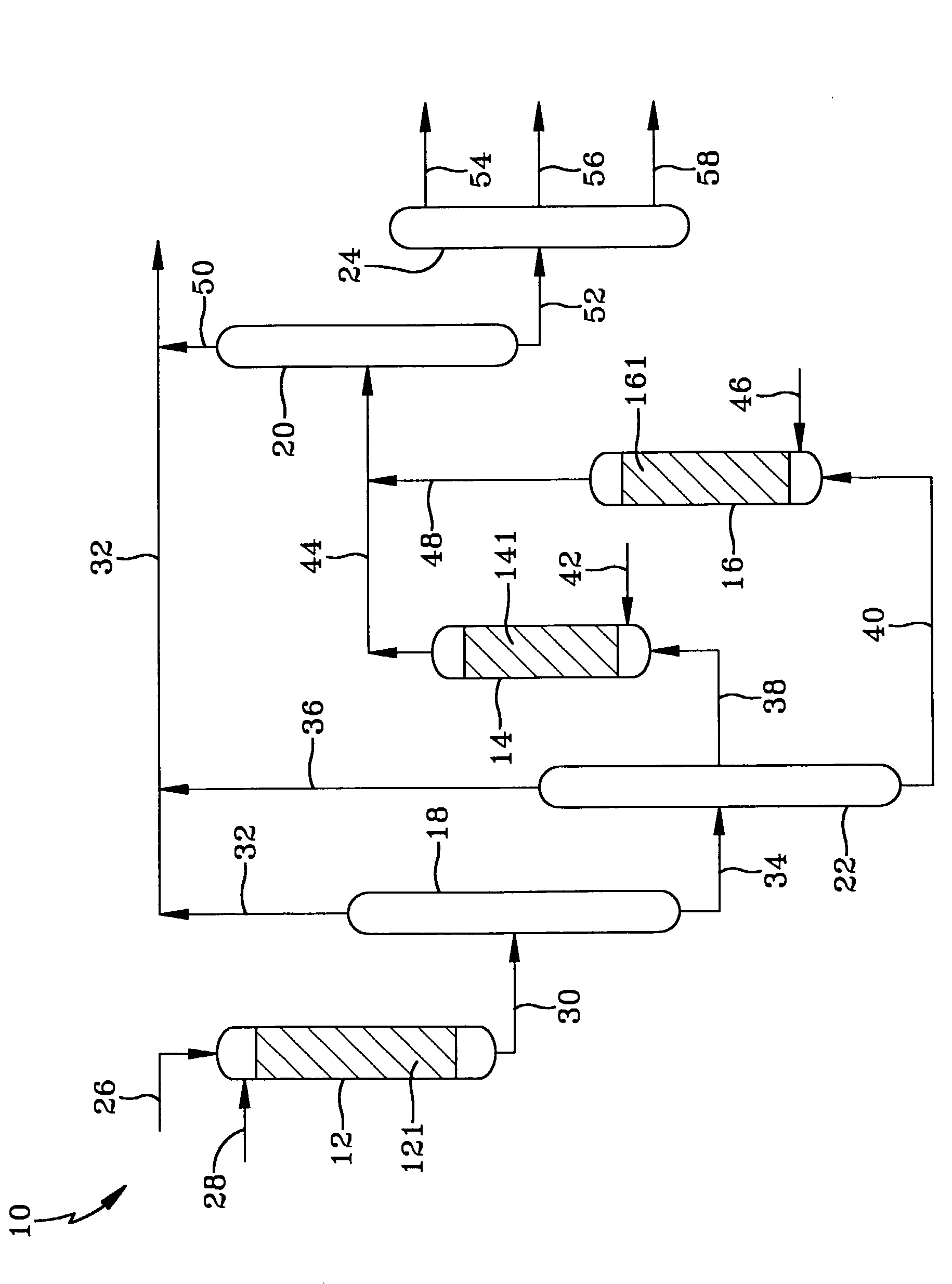Production of fuels and lube oils from fischer-tropsch wax
a technology of lubricant oil and wax, which is applied in the direction of hydrocarbon oil cracking, hydrocarbon oil treatment products, organic chemistry, etc., can solve the problems of high conversion and concomitant, substantial loss of lubricant and higher boiling fuel, and high loss of lubricant and high boiling fuel
- Summary
- Abstract
- Description
- Claims
- Application Information
AI Technical Summary
Problems solved by technology
Method used
Image
Examples
Embodiment Construction
[0026] The Fischer-Tropsch wax used as a feed for the hydrodewaxing process of the invention comprised a 430.degree. F.+ (221.degree. C.) waxy hydrocarbon fraction produced in a slurry Fischer-Tropsch reactor, in which the H.sub.2 and CO were reacted in the presence of a titania supported cobalt rhenium catalyst to form hydrocarbons, most of which were liquid at the reaction conditions. The synthesis reactor was operating at conditions to produce to produce at least 14 pounds of 700.degree. F.+ (371.degree. C.+) hydrocarbons per 100 pounds of CO converted to hydrocarbons. This 430.degree. F.+ (221.degree. C.) wax comprised mostly normal paraffins, including 71.5 wt % of 700.degree. F.+ (371.degree. C.) hydrocarbons and 26.2 wt % of 1000.degree. F.+ (538.degree. C.) hydrocarbons. This raw (untreated) wax boiled continuously up to its end point of greater than 1050.degree. F.+ (566.degree. C.) and was fed directly into the first reactor, without any treatment. Three hydrodewaxing stag...
PUM
| Property | Measurement | Unit |
|---|---|---|
| boiling point | aaaaa | aaaaa |
| boiling point | aaaaa | aaaaa |
| boiling point | aaaaa | aaaaa |
Abstract
Description
Claims
Application Information
 Login to View More
Login to View More - R&D
- Intellectual Property
- Life Sciences
- Materials
- Tech Scout
- Unparalleled Data Quality
- Higher Quality Content
- 60% Fewer Hallucinations
Browse by: Latest US Patents, China's latest patents, Technical Efficacy Thesaurus, Application Domain, Technology Topic, Popular Technical Reports.
© 2025 PatSnap. All rights reserved.Legal|Privacy policy|Modern Slavery Act Transparency Statement|Sitemap|About US| Contact US: help@patsnap.com

